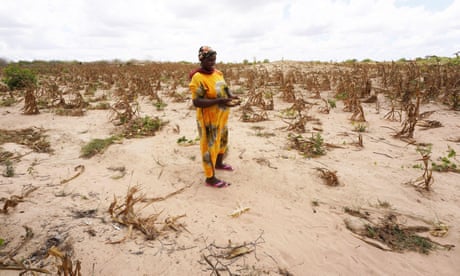Under its Vision 2035 strategy, the government of Djibouti is seeking to use its excellent transport links to build a fast-growing African economic and trade hub. By taking advantage of the African Continental Free Trade Agreement (AfCFTA), it can strengthen economic ties with other African economies, while acting as a conduit for trade with the rest of the world.
Djiboutis strategy has certainly paid dividends to date. Growth averaged more than 6% between 2013 and 2019, understandably weakened during the Covid-19 pandemic and immediate post-Covid years, but reached 7% in 2023.
The African Development Bank (AfDB) forecasts growth of 6.5% this year but the government hopes to lift the annual growth trajectory to 10% a year in the longer term. At the same time, pandemic-inspired inflation, which reached 11% in July 2022, fell to a more manageable 4.2% in January 2024.
Nevertheless, the government is continuing to respond to tightening global financial conditions, fallout from the Russian invasion of Ukraine and climate change, with three main policies: strengthening governance, improved revenue collection and making sure its expenditure has as much impact as possible. As a result, the government is moving all revenue administration on to digital platforms.
In the longer term, Vision 2035 aims to promote economic diversification into new sectors, including financial services, digital technology and tourism.
The number of licensed banks has increased from just two to 13 over the past few years but the government is keen to attract more employment in the sector. Djibouti is already connected to ten subsea telecoms cables but the telecoms sector is to be deregulated to attract more competition and thereby drive down prices.
Revenue from the US, Chinese, French, Japanese, Saudi Arabian and Italian military bases that Djibouti hosts could also be lifted. The military base leases are currently being reviewed to ensure that they are set at a fair rate and to institute a rate increase indexation mechanism.
According to Mohamed Siad Doualeh, Djiboutis ambassador to the US, the government is also seeking to boost economic ties with the countries operating military bases in the country in order to secure investment in other sectors.
About $2.3bn in foreign direct investment (FDI) was attracted over the two decades up to 2021 but this figure looks set to be greatly surpassed over the next 20 years. Foreign investors can benefit from the fact that the Djibouti franc has been pegged to the US dollar since 1949, the lack of restrictions on foreign exchange and profit repatriation, and the absence of specific limits on foreign land ownership.
The IMF is particularly keen to see more employment created in the next stage of the countrys economic development. To this end, the government is seeking to improve its human resources through a greater emphasis on education and training. The literacy rate in 2020 stood at 59% for adults aged under 49 but steadily increasing that figure will open up a wider range of employment opportunities for the population.
Port advantages for manufacturingA great deal of effort has been put into improving Djiboutis infrastructure to support inward investment. Most analysis of Djiboutis economic strategy rightly focuses on the central role played by its port facilities. Along with Mombasa, Djibouti is one of the two most important container ports in eastern Africa between Egypt in the north and South Africa in the south.
Its location on the Bab el-Mandeb strait also means that it lies on the main shipping routes between Asia and Europe, with almost a third of the worlds seaborne trade passing by Djiboutis shores.
Port cargo volumes increased by 31% in the year to the end of September 2023, although this was in large part the result of the post-pandemic recovery. Chinese investment has been key to the process, with China Merchants Port Holdings Company taking a 23.5% stake in Doraleh Multipurpose Port, which is still 66.5% owned by the state-owned Djibouti Ports and Free Zones Authority.
The port has built its business on its location but also on the role it plays as the main entrept for neighbouring landlocked Ethiopia. A growing proportion of cargo is transported between the port and Ethiopian factories by the 753km Ethiopia-Djibouti Standard Gauge Railway that was completed between Addis Ababa and Djibouti in 2015.
The line is now operating at close to full capacity and so the operating company is planning to double its capacity by means including investing in new locomotives and rolling stock. The main highway between Djibouti and Ethiopia is also to be upgraded following the World Banks decision to provide $730m to the project last year. The road is reported to be unsuitable for heavy vehicles on some stretches at present.
Building on the co











